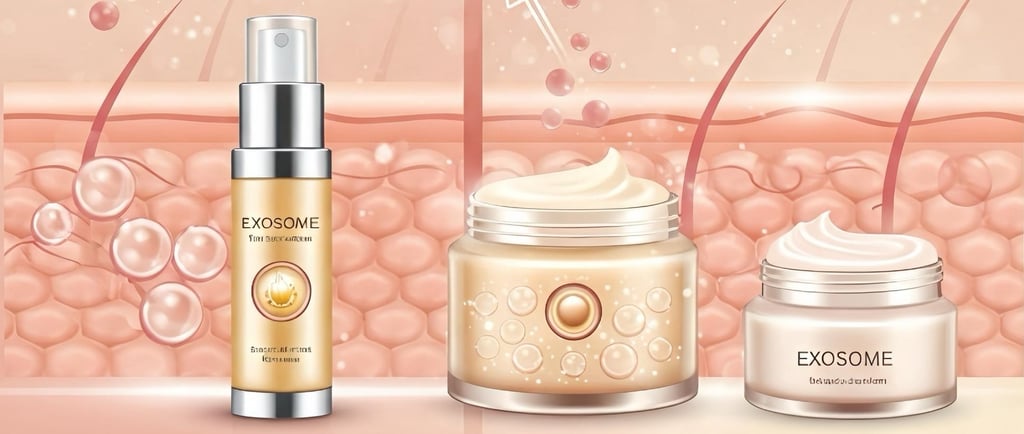How does stem cell technology like exosome helps in skin care beauty


Exosome therapy, leveraging stem cell technology, has emerged as a promising advancement in skincare, offering potential benefits for skin rejuvenation and repair.
Understanding Exosomes:
Exosomes are nano-sized vesicles naturally released by cells, functioning as carriers of proteins, lipids, growth factors, and nucleic acids. They play a pivotal role in intercellular communication, facilitating the transfer of bioactive molecules between cells. In skincare, exosomes derived from stem cells are utilized for their regenerative properties.
Mechanism of Action in Skincare:
When applied to the skin, exosomes deliver their cargo directly to skin cells, initiating several beneficial processes:
Cell Regeneration: Exosomes stimulate the repair and regeneration of damaged skin cells, promoting healthier skin.
Collagen and Elastin Production: They enhance the production of collagen and elastin, essential proteins for maintaining skin firmness and elasticity.
Reduction of Inflammation: Exosomes possess anti-inflammatory properties, helping to soothe irritated skin and reduce redness.
Improvement of Skin Texture and Tone: By promoting cell turnover and healing, exosomes contribute to a smoother and more even skin complexion.
Benefits of Exosome-Based Skincare:
Non-Surgical Intervention: Exosome treatments are minimally invasive, offering a non-surgical option for individuals seeking skin rejuvenation.
Minimal Downtime: These therapies typically involve minimal recovery time, allowing individuals to resume daily activities promptly.
Reduced Risk of Adverse Effects: Since exosomes are non-allergenic and non-immunogenic, the risk of adverse reactions is low.
Considerations and Regulatory Aspects:
While exosome therapy holds promise, it's essential to be aware of regulatory guidelines and sourcing practices:
Regulatory Compliance: In regions like the UK and EU, the use of human-derived exosomes in cosmetic products is prohibited due to safety concerns, including the risk of disease transmission.
Source of Exosomes: Exosomes sourced from non-human materials, such as plants or animals, are considered safer and are compliant with regulatory standards.
Conclusion:
Exosome therapy represents a significant advancement in skincare, harnessing the regenerative capabilities of stem cell-derived exosomes to promote skin health. However, it's crucial to ensure that such treatments comply with regional regulations and ethical sourcing standards to maximize benefits and minimize risks. Individuals interested in exosome-based skincare should consult with certified professionals to determine suitability and ensure adherence to safety guidelines.
